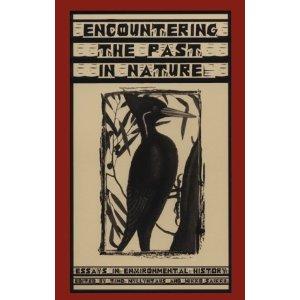Myllyntaus, Timo, and Mikko Saikku, eds. Encountering the Past in Nature: Essays in Environmental History. Athens: Ohio University Press, 2001. This small collection of essays by Finnish scholars establishes the basic tenets of environmental history as a field of inquiry. While the editors point to the similarities that exist between Finland and the United States with respect to their environmental histories, they also note that one of the most noticeable distinctions between Finnish and American environmental histories revolves around notions of wild spaces. The editors suggest that the Finnish customary concept of wilderness (erämaa) does not imply a completely intact or virgin nature, but rather translates as hunting ground—a far more practical idea than Anglo-American ideas of wilderness as a pure and original nature outside of human influence. Ari Aukusti Lehtinen’s “Modernization and the Concept of Nature” further stokes the debate over constructions and deconstructions of wilderness. Ismo Böjrn then presents a rich history of the North Karelian Biosphere Reserve in eastern Finland, leading readers through landscapes changed by evolving human economies, from hunter-gatherer economies to post-industrial economies, which read nature as more than simply an extractive resource. The two penultimate essays leave Finland for Thailand and the United States. Olavi Luukkanen’s fascinating essay examines forest depletion in Thailand. In his equally interesting essay on the extinct ivory-billed woodpecker of the southeastern United States, Mikko Saikku makes useful connections between wildlife species and ecosystem health, arguing that the bird’s disappearance is indicative of significant change in the southeastern hardwood forests caused by commercial industrialization and development. Encountering the Past in Nature concludes with a concise chapter by Myllyntaus, which might easily have served as an alternative introduction, outlining the parameters of environmental history as a discipline. (Text adapted from an H-Net review by Michael Egan.)
Encountering the Past in Nature: Essays in Environmental History
Myllyntaus, Timo, and Mikko Saikku, eds. | from Multimedia Library Collection:
Books & Profiles


